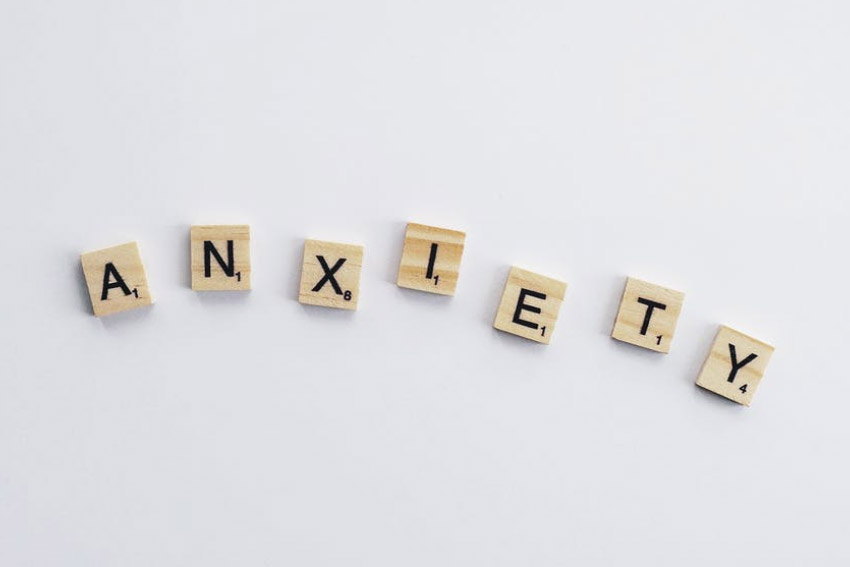
- February 24, 2023
- Center for Developmental Psychiatry
What Are the Different Types of Anxiety?
When was the last time you felt anxious? Was it during a high-stakes scenario, such as during a medical exam, while sitting for a test, or while a plane was landing?
Now, imagine that feeling persisting. What might it feel like to walk in the world and live your life with the crushing weight of fear on your shoulders?
That’s what reality is like for individuals living with different types of anxiety.
Before an anxious individual can begin treatment, they must consult a psychiatrist for anxiety. This compassionate professional can identify which type of anxiety disorder is impacting their life. Even hearing a diagnosis can significantly relieve the weight of this complex condition.
If you or someone you love is living with anxiety, it’s time to take the first step and pursue a diagnosis. Below, we’ve outlined several types of anxiety disorders. Continue reading to learn more about the characteristics of each condition before meeting with a psychotherapist from CDP.
Generalized Anxiety
Worrying about grades, friends, current events, or work is natural. It’s not natural to fixate on these topics, returning to your concerns repeatedly. Individuals with a generalized anxiety disorder tend to hyper-fixate on one or more issues to the point where it’s hard to concentrate on daily living.
People with generalized anxiety think about topics that distress them throughout the day. Sometimes, thoughts come up at inappropriate times.
Children and adults with generalized anxiety often experience physical symptoms, too. These may range from headaches to severe mood swings.
Patients of all ages can receive treatment for generalized anxiety at an anxiety treatment center. An anxiety psychiatrist will determine the course of treatment, often starting with talk therapy. If untreated, generalized anxiety sometimes leads to depression or other mood disorders, so it’s wise to address your concerns early.
Panic Disorder
A panic disorder is an anxiety disorder that involves panic attacks. Sometimes these attacks have a “trigger.” Other times, they may occur spontaneously.
Everyone with panic disorder has a slightly different experience of panic attacks, but they all share a few things in common.
First, the individual will experience physical symptoms. Symptoms can include a racing heart, dizziness, sweating, nausea, or pain.
They also involve heightened mental sensations. Those may feel like doom, fear of death, or a loss of control.
Anyone can have an isolated panic attack. It becomes a panic disorder when the panic attacks themselves, or the fear of having one, impacts a person’s daily life.
Psychotherapy can help individuals with panic disorder learn to identify triggers and cope with panic attacks. It can be helpful to gain access to medications that can help mitigate the most severe symptoms during a panic episode.
Social Anxiety
We’ve all wondered what other people think of us. So many choices we make, from what to wear to how to speak, to meet the perceived expectations of people around us. For individuals with social anxiety, the opinions of others dictate nearly every moment of their lives.
It’s common for social anxiety to be more pronounced in specific settings, such as school or work. It often makes it difficult for individuals to participate, make friends, or accomplish goals.
They also may have “safe people” or “safe places.” When they engage and interact without fear, their anxious behavior appears in stark contrast.
There is a difference between feeling shy and feeling anxious. Shy people may feel uncomfortable in certain situations but can push through with gentle support. People with anxiety cannot easily overcome their fear.
The first step toward treatment for this anxiety disorder is traditional talk therapy at a psychotherapy center. Your doctor will discuss whether anxiety medication might help.
Phobias
Phobias are intense, specific fears. They differ from age-appropriate developmental fears in children. Sometimes a traumatic experience triggers a new phobia.
A phobia causes extreme distress and preoccupation. For example, a fear of spiders might mean avoiding outdoor activities. A fear of needles might mean neglecting medical care.
A fear must last for at least six months to qualify as a phobia. It’s appropriate to seek treatment if the anxiety impacts your quality of life.
Separation Anxiety
Separation anxiety is most common in children and young people. Some fear of separation is healthy in secure relationships. In the case of separation anxiety, fear involves severe preoccupation and distress.
For example, an individual with separation anxiety might worry about what might happen to a loved one or caregiver in their absence. In other cases, they may become preoccupied with their own safety in the absence of a loved one. Trauma, loss, or stressful events are frequent triggers for this behavior.
Separation anxiety can make transitions difficult, especially for young children. School drop-offs might be traumatic. They often include tears, yelling, and clingy behavior.
A child might repeatedly ask questions about the routine, including when they can expect to see their caregiver next. Psychotherapy is often helpful for children and their caregivers. Consider family therapy if separation anxiety is impacting your life.
Understanding the Different Types of Anxiety
Everyone feels anxious occasionally. When that anxiety impacts your life and ability to function, it’s time to seek help.
Understanding the different types of anxiety is a great way to start a conversation with a trained psychiatrist. Make that the first step as you pursue anxiety disorder treatment.
Many patients find it helpful to work with a doctor for anxiety who offers therapy and prescribes medication. The compassionate professionals at the Center for Developmental Psychology always approach anxiety treatment with a comprehensive view. Schedule a consultation to learn why New Jersey families trust CDP.